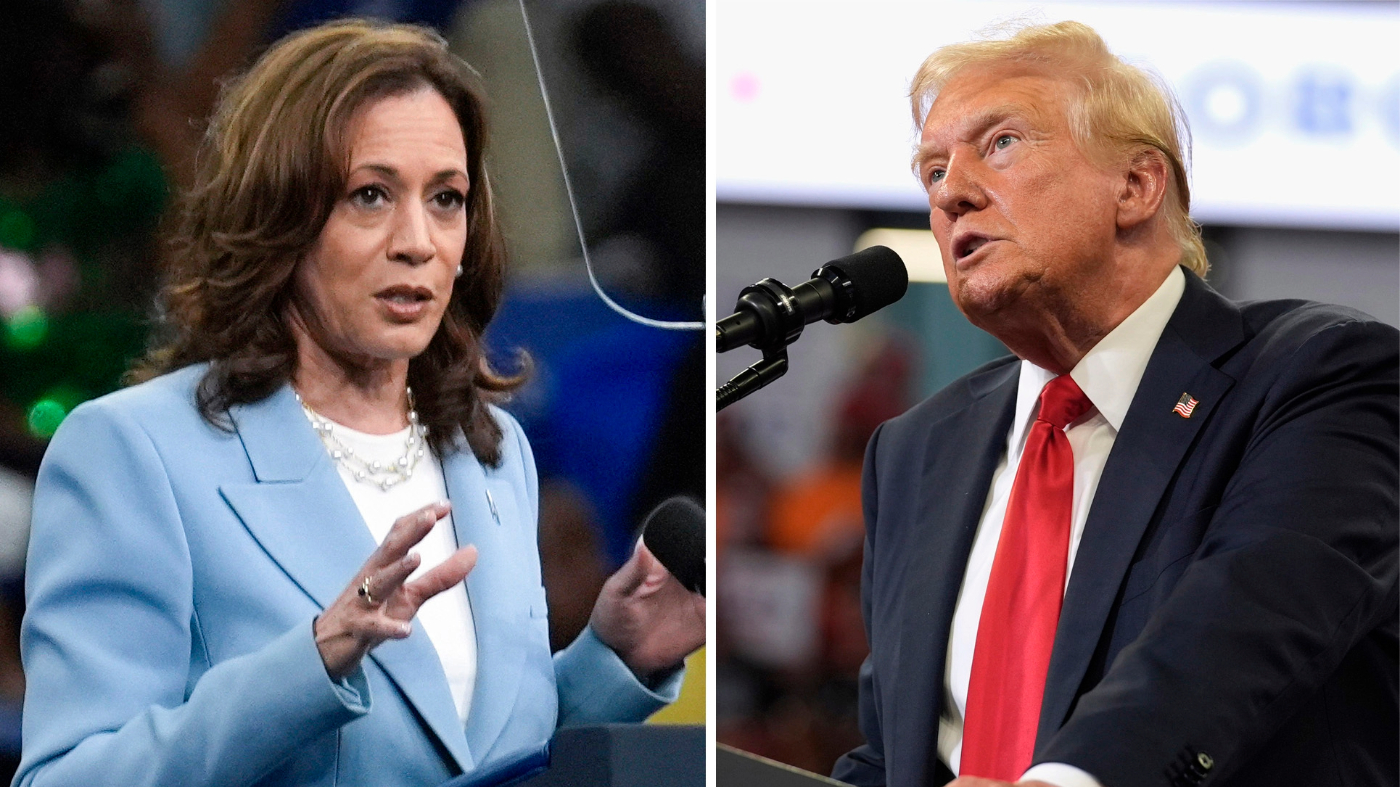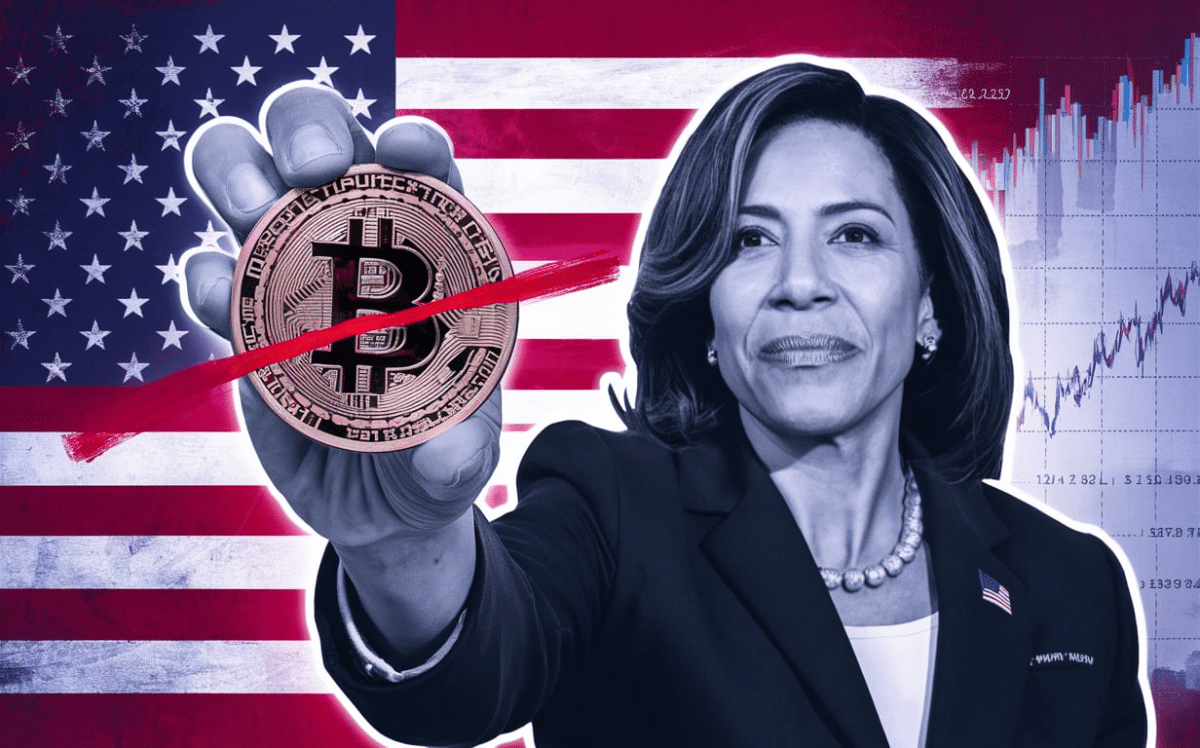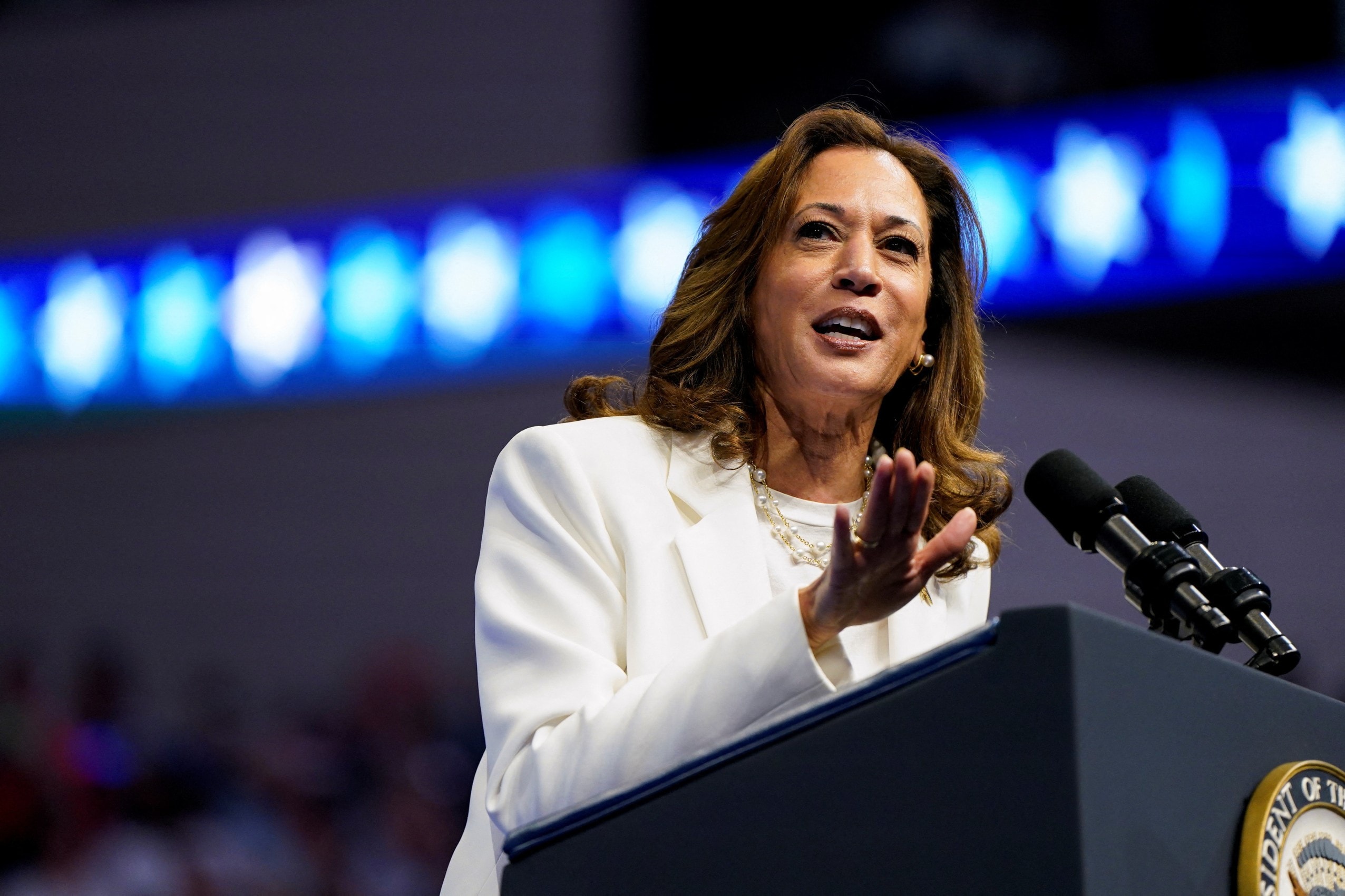Why Kamala Harris Winning the Elections Would Be Terrible News for Crypto Markets
Kamala Harris winning the election could be a major setback for the cryptocurrency market. Her support for stricter regulations and unclear policy directions have many in the crypto community on edge. In this article, we’ll explore why Kamala Harris winning the elections would be terrible news for crypto, as her presidency might pose significant risks to digital assets.
Key Takeaways
- Kamala Harris supports establishing a regulatory framework for digital assets, but specifics are lacking, causing uncertainty in the crypto markets.
- Investor sentiment has already been negatively impacted by Harris’s rising poll numbers, leading to declining prices and volatility in cryptocurrencies.
- The crypto industry is concerned about potential regulatory challenges under a Harris administration and is watching closely for clarity and supportive policies.
Harris’s Regulatory Stance on Digital Assets
Kamala Harris has made her position on digital assets clear: she supports the establishment of a regulatory framework to prevent conflicting policies between agencies like the SEC and CFTC. This supportive stance is a marked departure from the more hostile approach of the current administration, aiming to counter perceptions of her as anti-crypto. Despite this supportive rhetoric, Harris has yet to lay out a specific regulatory framework for cryptocurrency, leaving many in the industry anxious about what her presidency might entail.
Harris’s campaign aims to appeal to both tech and crypto investors while balancing concerns from Democratic economists. This balancing act is crucial as she’ll need to navigate the pressures from the crypto sector to adopt a more favorable regulatory approach compared to the current administration. The Harris campaign has emphasized fostering a safer environment for businesses involved in digital assets in her recent speeches, yet the specifics remain hazy.
Harris’s ambition to keep the U.S. as a leader in blockchain technology and digital assets could lead to uncertainty and volatility in the crypto markets without a clear plan. The digital asset community is watching closely, hoping for clarity and support, but also preparing for potentially restrictive measures.
Impact on Crypto Markets

A Harris presidency could prompt regulatory changes, leading to greater volatility in the cryptocurrency sector, according to market analysts. The crypto markets, known for their sensitivity to political shifts, are already showing signs of apprehension. Concerns about stricter regulations under Kamala Harris’s leadership may result in decreased investor confidence in digital currencies, which could spell trouble for the market’s stability.
Increased regulatory scrutiny could significantly hinder institutional investment in Bitcoin and other cryptocurrencies. Institutional investors, cautiously entering the crypto space, might pull back if they perceive the regulatory environment as too restrictive. This hesitation could lead to reduced capital inflows and stunted market growth.
Moreover, the mere anticipation of these regulatory changes has already affected market behavior. The crypto industry thrives on speculative investment, and any uncertainty can lead to rapid and significant market shifts. The market’s reaction to Harris’s regulatory stance underscores the delicate balance between fostering innovation and ensuring regulatory compliance.
Crypto Companies’ Concerns
Crypto companies are on high alert as the crypto election draws near. Potential regulatory challenges under a Harris administration are a significant concern for these companies. The involvement of advisers with crypto industry experience, such as David Plouffe and Brian Nelson, in Harris’s campaign signals a possible inclination towards stricter regulation. This has left many companies wondering whether the support Harris has claimed will materialize into favorable policies or more stringent controls.
The New York Times has highlighted the apprehensions within the crypto industry regarding Harris’s potential presidency. Companies fear that without clear and supportive regulatory guidelines, they might face increased compliance costs and operational hurdles. This uncertainty is causing some to consider relocating to more crypto-friendly jurisdictions.
The presence of industry-savvy advisers could mean that Harris’s administration might understand the unique needs and challenges of the crypto sector better than previous administrations. However, until specific policies are laid out, the crypto companies remain in a state of cautious anticipation.
Investor Sentiment and Market Reactions
Kamala Harris’s rise in the polls has already impacted investor sentiment towards the crypto markets. Since her nomination, Bitcoin has reportedly lost 3% of its value. This decline highlights the market’s sensitivity to political developments and the potential regulatory landscape under a Harris administration.
The market’s reaction reflects broader concerns about the future, not just immediate price changes. Investors are wary of the potential for increased regulation, which could hamper the growth and innovation that have characterized the crypto sector. This cautious approach is evident in the weakening of Bitcoin’s price and the overall market volatility.
A Federal Reserve survey revealed that only 7% of Americans held or used crypto in 2023, indicating that while the crypto market is growing, it remains a niche sector. The reactions of these investors to political developments like Harris’s potential presidency underscore the importance of clear and supportive regulatory frameworks to maintain and grow investor confidence.
Comparison with Trump’s Pro-Crypto Policies

Kamala Harris’s stance on digital assets starkly contrasts with Donald Trump’s pro-crypto policies. Trump’s evolution towards favoring Bitcoin and promoting the idea of the U.S. becoming a leading nation in Bitcoin marked a significant shift in political engagement with digital assets. This pro-cryptocurrency sentiment was further emphasized by Trump’s campaign accepting cryptocurrency payments, which was a groundbreaking move in the political landscape.
Trump’s approach garnered substantial support from the crypto community, raising $25 million from crypto enthusiasts. This financial backing demonstrated the crypto industry’s eagerness for policies that support innovation and growth. In contrast, Harris’s proposals, though popular overall, have not yet inspired the same level of confidence within the crypto sector.
Although Harris aims to provide regulatory clarity and foster a safer environment for digital assets, the crypto industry remains skeptical. Comparing Trump’s clear and supportive policies with Harris’s highlights the uncertainty her potential presidency brings to the crypto markets.
Influence of Crypto Lobbyists

Crypto lobbyists play a key role in shaping political support for digital assets. Groups like Crypto4Harris are actively working to influence policies and establish stronger ties with the cryptocurrency industry. Lobbyists focus on advocating for policies friendly to digital assets, hoping to sway Harris towards a more supportive regulatory framework.
The financial backing from the crypto industry in the current election cycle is significant, with $54.6 million directed towards Republicans candidates compared to $33.7 million for Democrats. This disparity illustrates the power of crypto lobbyists to influence the political landscape and promote candidates that favor crypto initiatives.
The growing influence of crypto lobbyists underscores the high stakes of the crypto election. As these groups continue to push for favorable policies, their impact on the political and regulatory environment will be pivotal in shaping the future of the crypto markets.
Potential Legislative Changes
The crypto industry has long sought a unified regulatory framework to avoid conflicting policies from different agencies. Under a Harris administration, there might be significant legislative changes aimed at providing regulatory clarity for the crypto sector. This clarity could potentially encourage innovation and job retention within the U.S.
Political dynamics in Congress, influenced by significant funding from the crypto sector, may pave the way for new legislative approaches to digital asset regulation. Proposals like the Strategic Bitcoin Reserve Act, which aims to establish a secure network of Bitcoin vaults, highlight the ongoing discussions about how to regulate and support the crypto industry.
Integrating cryptocurrency into Harris’s economic agenda could promote financial inclusion by providing access to decentralized financial services for underserved populations. This approach could balance the need for innovation with investor protection, fostering a more stable and supportive environment for digital assets.
Historical Context: Democrats and Crypto
The Democratic Party’s relationship with crypto has evolved significantly in recent years. The Democratic National Convention marked a notable shift as crypto was openly welcomed, reflecting its growing importance within the party. Meetings and panels at the DNC focused on understanding crypto and addressing the party’s previously strained relationship with the industry.
There is a growing bipartisan interest in crypto, with even skeptics acknowledging the need for legislative reforms rather than just enforcement. This shift towards a more accepting attitude is crucial for the future of crypto legislation, as policymakers across the political spectrum become more curious about digital assets.
The Democratic Party’s gradual shift towards a more pro-crypto stance may facilitate bipartisan progress on crypto legislation in the future. This evolving relationship highlights the potential for new legislative frameworks that support the growth and stability of the crypto markets.
Swing States and Crypto Voters
Crypto enthusiasts represent a significant voting demographic, with approximately 20% of registered Democratic voters owning digital assets. This demographic could play a crucial role in swing states, where their votes could significantly impact the election outcome. Crypto voters, representing about 14% of the electorate, include individuals from various political ideologies, not just a specific party.
The electoral stakes for the Democratic Party’s stance on crypto are high. As the crypto election unfolds, the party’s position on digital assets could influence voter turnout and preferences in key battleground states. This dynamic underscores the importance of clear and supportive regulatory policies to win over this influential voting bloc.
The impact of crypto voters in swing states highlights the intersection of politics and digital assets, where the stakes are not just financial but also deeply political. Addressing the concerns of crypto enthusiasts could be pivotal for the Democratic Party in securing electoral victory.
Business and Economic Implications

Harris’s regulatory approach could have significant economic implications for U.S.-based crypto firms. Without clear regulatory guidance, there is apprehension that these firms may relocate abroad, resulting in a loss of innovation and jobs. Legislative gridlock remains a concern, potentially delaying the establishment of comprehensive regulatory frameworks despite ongoing discussions.
Harris’s administration might shift towards ensuring regulatory frameworks protect digital asset investors while promoting innovation. This balance is crucial for stimulating growth in the industry and maintaining American economic and technological leadership.
The potential of digital assets to democratize finance and enhance financial accessibility for underserved populations is a significant concern that should be part of any regulatory discussions. Harris’s ‘Opportunity Economy’ focus includes utilizing crypto to support small businesses and working families, highlighting the broader economic implications of her regulatory stance.
Summary
Kamala Harris’s potential presidency presents a complex picture for the crypto markets. While her supportive rhetoric towards digital assets is a positive sign, the lack of a clear regulatory framework creates uncertainty. The impact on investor confidence, market behavior, and the broader economic implications are significant concerns for the crypto industry.
As the crypto election draws near, the stakes are high for both political parties and the crypto community. The outcome will shape the future of digital assets in the U.S., influencing innovation, investment, and regulatory policies. The intersection of politics and cryptocurrency is a dynamic and evolving landscape, and the decisions made in this election will have lasting impacts.
Frequently Asked Questions
What is Kamala Harris’s stance on digital assets?
Kamala Harris advocates for a clear regulatory framework for digital assets to ensure consistent policies among regulatory agencies such as the SEC and CFTC. This approach aims to foster clarity and security in the rapidly evolving digital asset landscape.
How might a Harris presidency impact the crypto markets?
A Harris presidency could increase market volatility in the crypto sector due to anticipated regulatory changes and heightened scrutiny on institutional investments. This environment could ultimately decrease investor confidence and affect overall market stability.
What are the main concerns of crypto companies regarding Harris’s potential presidency?*
Crypto companies are concerned that Kamala Harris’s presidency could bring stricter regulations, especially given her campaign’s advisers who may lack experience in the crypto industry. These potential regulatory challenges pose risks to the future of the sector.
How does Harris’s stance compare to Donald Trump’s pro-crypto policies?
Harris’s stance contrasts sharply with Donald Trump’s pro-crypto policies, as Trump actively promoted cryptocurrency and accepted crypto payments during his campaign, attracting significant backing from the crypto community. In contrast, Harris has shown a more cautious approach towards digital currencies.
How influential are crypto lobbyists in the current election?
Crypto lobbyists are significantly influential in the current election, actively working to shape political support and policies that favor the digital asset industry. Groups like Crypto4Harris exemplify this effort by promoting candidates aligned with crypto interests.


